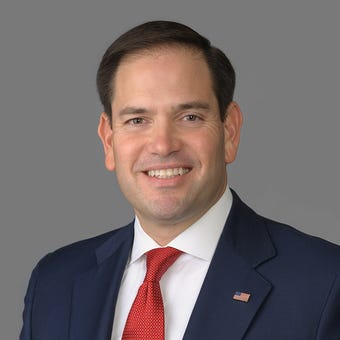Twenty years ago, the People’s Republic of China (PRC) joined the World Trade Organization (WTO). For many of our nation’s economic elites, this symbolized the dawn of a utopian era of peace, prosperity and openness.
The fact that I do not need to spend any time convincing anyone this is not how things turned out is a testament to how wrong those elites were.
America’s Gross Domestic Product is larger now than ever, but its communities are weaker and its people poorer. Far from liberalizing the PRC, opening our respective economies pulled jobs away from the United States and placed our economy at the mercy of a despotic Chinese Communist Party (CCP).
US MUST NOT ENABLE EVIL IN CHINA AND AT THE BEIJING OLYMPICS
Today, the CCP uses its growing influence over the U.S. economy to make American companies lobby on its behalf in Washington. Meanwhile, the quality of life of working-class Americans has significantly declined as millions of manufacturing jobs have moved overseas – to a country that unabashedly employs slave labor.
Though there is a growing awareness that the decision to let China into the WTO was a mistake, there is considerably less interest in reevaluating the bipartisan economic consensus that led us to that decision. But to regain American strength and standing in the world, we must recognize why that consensus was – and still is – deeply flawed.
First, the consensus is flawed because it is built on the incorrect assumption that an American’s primary identity isn’t spouse, parent or worker, but shopper. If you believe people are consumers over everything else, then opening our economy to the PRC was an unqualified good, because it means lower prices for everyday items.
But American politicians have ignored the reason products are cheaper, which is that they are made by foreign workers receiving lower wages. In the PRC, these workers may be enslaved Uyghurs, abducted from their homes to labor for nothing.
Since 2001, the stock market has risen 130%, but middle-class Americans have seen only a 6% increase in income.
Politicians have also ignored that the tradeoff for temporarily lower prices at home was the collapse of American manufacturing. We have enjoyed cheap goods, but at the cost of human rights violations and diminished industrial capacity.
It’s in the decision to move production to China that we see another failure of the neoliberal consensus, one derived from the false belief that the stock market and corporate profits are the same thing as real economic growth and innovation.
Since 2001, the stock market has risen 130%, but middle-class Americans have seen only a 6% increase in income. Lower-income Americans have not seen growth at all. With the added effects of inflation, the decline in quality of life is stunning. Profits for corporate shareholders increased after the PRC’s entry into the WTO, but those profits were at the expense of ordinary Americans’ well-being and our country’s economic resiliency.
The events of 2008 showed us that an economy built on finance is a house built on sand – and 2020 showed us how vulnerable an economy is when it depends on foreign rivals to produce its basic goods. And the current supply chain shortages demonstrate how fragile we are without domestic manufacturing. Reality reveals the holes in the consensus thinking.
Finally, our elites have been guided by the belief that economic union with the CCP would give America more influence over the PRC and the rest of the world, but this is simply not true. Over the past 20 years, the opposite has happened. By sending our jobs and factories to the PRC and allowing the CCP to steal our technology and research, we have let Beijing turn our companies into its advocates and our athletes and celebrities into its ambassadors.
CLICK HERE TO GET THE OPINION NEWSLETTER
We see this when the U.S. Chamber of Commerce and the Business Roundtable petition the Biden administration to lift Trump’s tariffs on the PRC. We see it when major American corporations and a faction dedicated to getting a "climate deal" with Beijing convince Democrats to block my Uyghur Forced Labor Prevention Act from becoming law, as they have been doing for months. And we see it when investors like Ray Dalio say the CCP is just a "strict parent" and Americans have "our own human rights issues."
When the economic theories that govern our nation lead people to advance the interests of a foreign power and cover up its crimes, it becomes painfully clear that those theories are rotten. The time has come to boldly and directly advance American interests and values in our public policy.
Forging a path toward a pro-American capitalism that protects our nation’s interests and serves the common good will not be easy. Some of the most powerful businesses in our economy are deeply invested in the status quo, and many of the most powerful people in our government are deeply committed to the road we are on now.
CLICK HERE TO GET THE FOX NEWS APP
But charting a new way forward is the only way forward. And it will not be the work of one person or one party. To succeed, it must be the work of an entire generation and cross the entire political spectrum. It must become our new consensus.
This is a work that we must accomplish, or else we will be forever defined as the generation that managed the steady decline of a once great nation.





